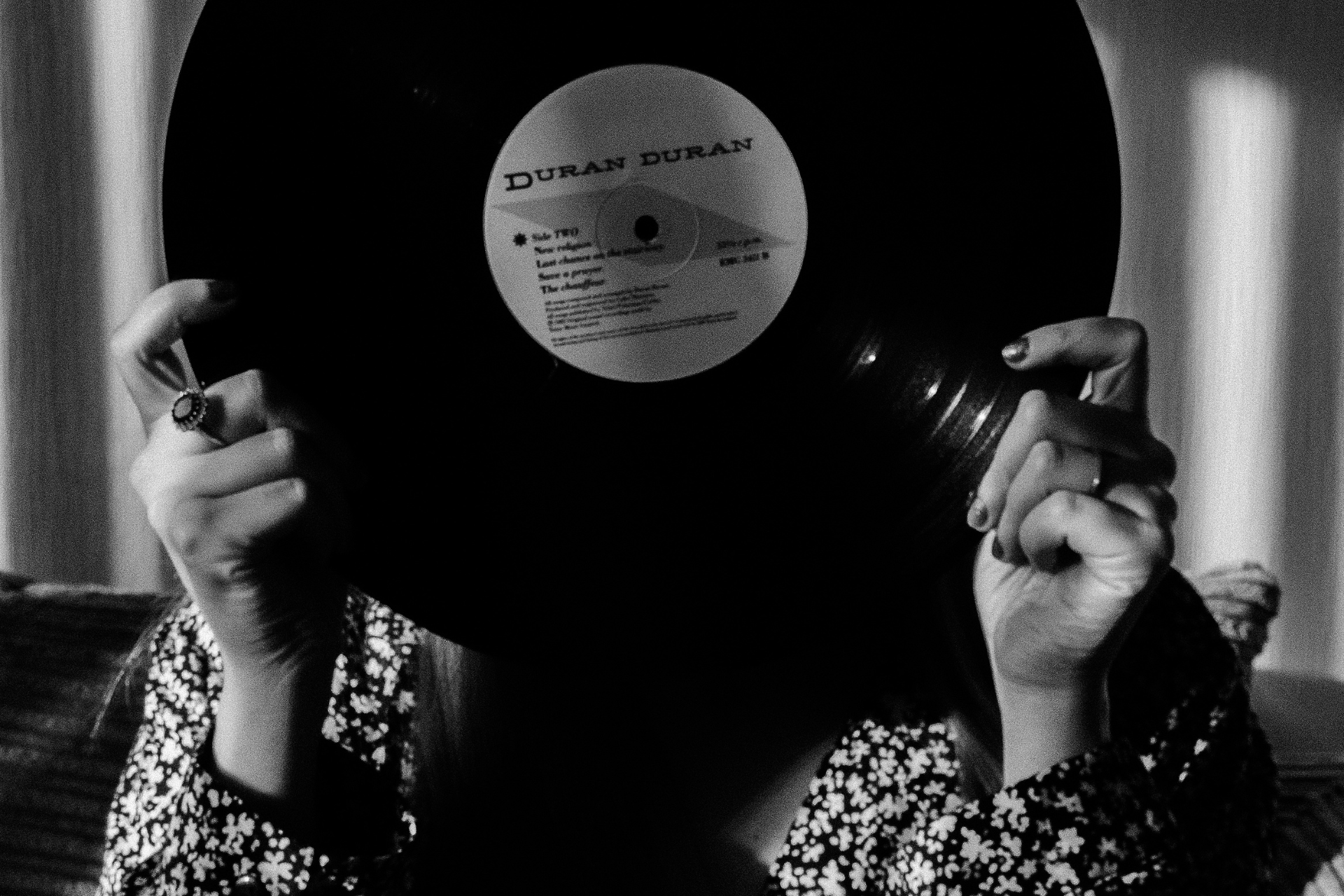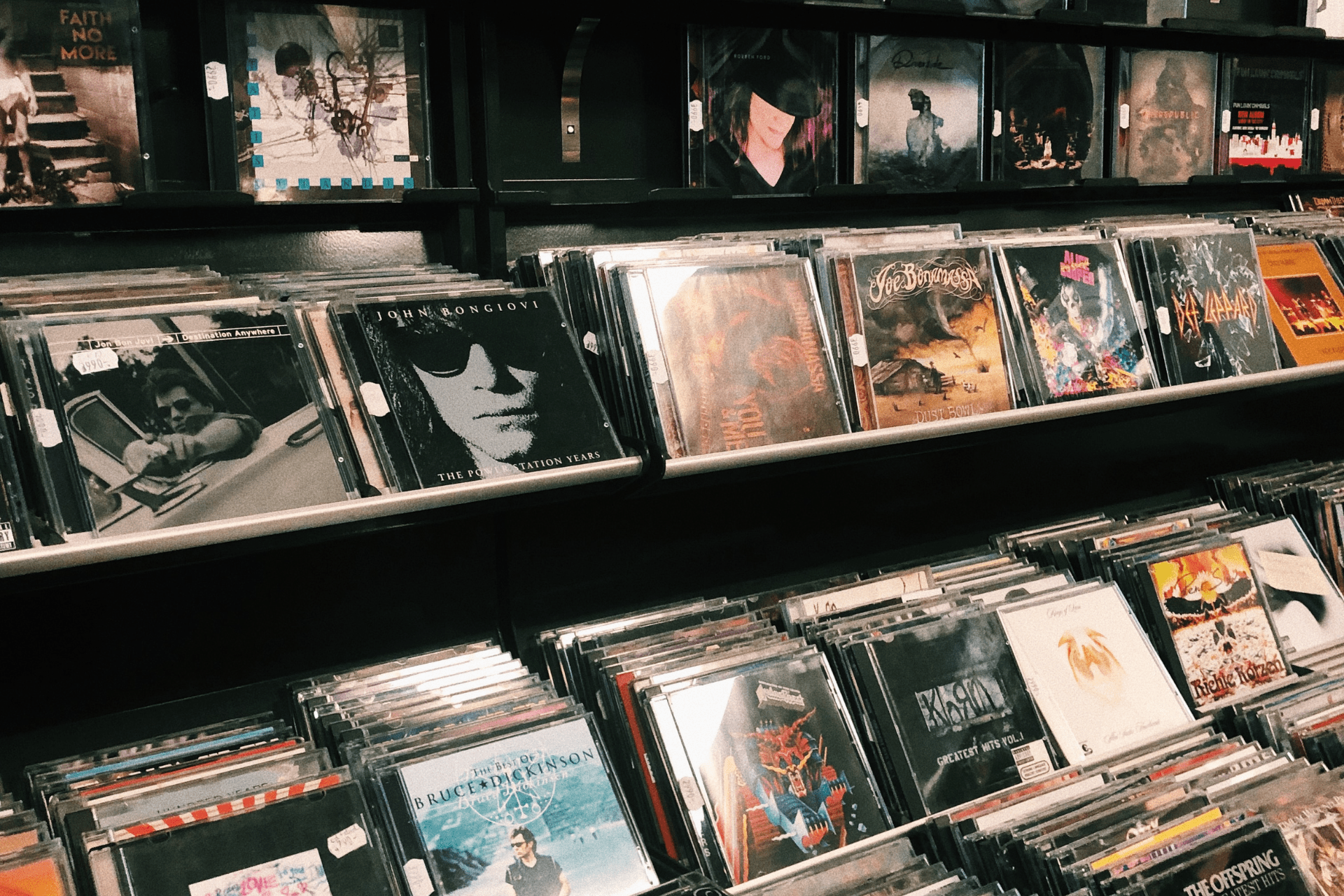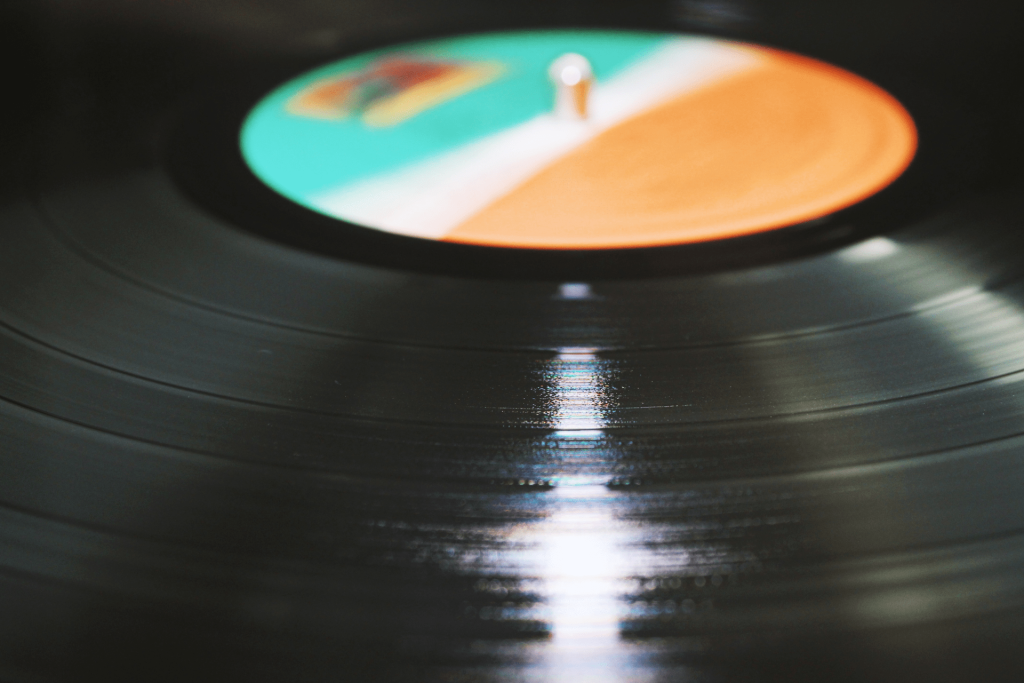You’re talking to a label rep and they say, “We loved your record.” You nod and smile, but then immediately wonder—wait, do they mean my album? Or the single?
If you’ve ever found yourself asking “what is the difference between a record and an album?”, you’re not alone. These terms get tossed around a lot in the music world, and depending on who’s talking, they can mean different things.
Whether you’re making music or are a fan who wants to use the right lingo, we’re here to clear things up for you.
What is an Album?

Traditionally, albums were released on physical formats like vinyl, cassette, or CD—each with time limitations that shaped how artists crafted their projects. A vinyl LP, for example, usually maxed out at around 45 minutes, which became the norm for decades.
What is a Record?
A record can mean a few different things depending on who you’re talking to—and that’s part of what makes it such a fun, flexible word in the music world. At its core, a record is any audio that’s been recorded and stored in a physical or digital format.
That could be a single song, an EP, a full-length album, or even a voice memo on your phone. If it’s been recorded? Technically, it’s a record.
That said, most people use the word in one of two ways. One, it’s shorthand for vinyl—like “I just picked up that new record from the shop.” Two, it’s an umbrella term for a music release—like “This band just dropped a killer record,” even if it’s a 3-song EP on Spotify.
Historically, the term comes from “gramophone records”—those flat discs you spin on a turntable. Back in the day, each disc only held a few minutes of music per side, so a full album would actually be a collection of records packaged together in—you guessed it—an album.
Why Do Bands Use Both?
These days, “record” and “album” are used so interchangeably that even seasoned musicians swap them without thinking twice.
Someone might say, “We’re finishing up our new album,” and two minutes later say, “We’re dropping the record next month.” Same project—just different lingo. The overlap makes sense.
Both words can refer to a body of work, a creative statement, or a music release as a whole. In casual conversation, they’ve become near-synonyms.
It doesn’t help that “record deal” is still the industry standard—even if what’s being signed is for digital singles and EPs, not vinyl pressings.
Streaming has blurred the lines even further. When everything lives on the same digital shelf—whether it’s a one-track release or a 14-song concept project—it’s easy to see why the terms get mixed up. Most fans aren’t parsing the difference. They just know they love the music.
Still, for artists, it’s helpful to understand where these words come from and how they’re used. If you’re talking to a label, a publicist, or even just your fanbase, knowing the difference gives you a little more control over how your work is understood—and that’s never a bad thing.
5 Things To Know About the Difference Between A Record And An Album

1. Vinyl records aren’t always full-length albums.
Just because it’s a vinyl doesn’t mean it’s an album. Singles, EPs, and even spoken-word tracks can all be pressed to vinyl. The format doesn’t define the content length—so not every record is a full-blown album.
2. “Record” is a term often used to describe any released music.
In everyday language, “record” is a catch-all for anything released—whether it’s one song, a few tracks, or a whole album. It’s a music culture term that sticks, even if it’s not technically specific.
3. Not all records are LPs.
An LP (long play) is one type of record, typically a full-length album. But records can also be 7-inch singles, 10-inch EPs, or even weird limited releases that don’t fit the mold. LPs are common—but they’re just one piece of the vinyl puzzle.
4. The vinyl format permanently changed the way artists release new music.
Back when vinyl was the main format, the time limits of each side shaped how artists structured their songs and albums. Even now, artists releasing on vinyl often consider those physical constraints when sequencing tracks.
5. Not all turntables can play every type of record.
Vinyl comes in different sizes and speeds—33 1/3, 45, and even 78 RPM. If your turntable doesn’t support the right speed or size, that shiny new purchase might not play right (or at all). Format matters, especially for collectors and audiophiles.
Difference Between a Record and an Album: Frequently Asked Questions
Is a record and an album the same thing?
A record and an album are not exactly the same thing, though they’re often used interchangeably. An album refers to a collection of songs released together as a cohesive project, while a record can refer to any recorded music—including singles, EPs, or albums—and is also used to describe physical formats like vinyl.
Can you call an album a record?
Yes, you can call an album a record. In casual conversation, many people use “record” to describe a full-length album, especially when referring to vinyl releases. While technically not all records are albums, the terms are widely accepted as synonyms in most music circles.
Are albums and vinyl the same thing?
Albums and vinyl are not the same thing. An album is a collection of music, while vinyl refers to the physical format it’s played on. Albums can be released digitally, on CD, cassette, or vinyl—vinyl is just one way to deliver the album.
Why do artists say record instead of album?
Artists often say “record” instead of “album” because it’s a broader, more classic term rooted in music history. “Record” can refer to both the music itself and the process of making it, giving it a timeless, artistic feel that many musicians prefer.
What’s the difference between Record of the Year and Album of the Year at the GRAMMYs?
At the GRAMMYs, Record of the Year honors a single track’s performance and production, focusing on one song’s sonic quality and artistry. Album of the Year recognizes an entire collection of songs, judged as a full body of work and looked at cohesively.
Submit Your Music to Hardstop Records!

At Hardstop Records, every demo gets a proper spin. No bots. No black holes. Just real ears, real feedback, and a real shot at being part of something bigger. Submit your music today and let’s turn that release into something unforgettable.


